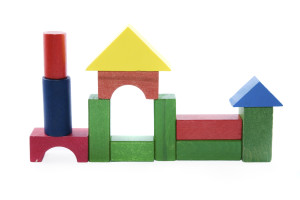 The recent global events as well as a blog post from Dr. Milton Bennett about tolerance makes me think along the following lines: all humans have an automatic tendency to judge their own experiences.
The recent global events as well as a blog post from Dr. Milton Bennett about tolerance makes me think along the following lines: all humans have an automatic tendency to judge their own experiences.
Instead of simply noticing what is there in the present moment, unfolding and happening, we think about what needs to be changed, how things could or should be different. Something is not quite right in a way, not good enough, not what we had expected and wanted.
Often these thoughts will take us, quite automatically, down on some fairly well-worn paths in our minds. In this way, we lose awareness of the present moment and the ability to freely choose if and how to react. We jump quickly on to conclusions, which seem to be the right ones and by doing so, trigger behaviors and actions from ourselves and others around us.
Relating to the idea of tolerance we might want to ask ourselves where our threshold lies.
- How do we really feel deep inside us?
- What type of experiences deplete us and which ones make us happy?
- Where do we feel comfortable and where uncomfortable?
We can regain our freedom from automatic thoughts and reactions, if as a first step we simply acknowledge the actuality of the situation we find ourselves in, without being automatically hooked into tendencies to judge, fix, or want things to be different from the way they are.
How do we do this?
- Notice what is going on
- How did your body feel in detail during the experience?
- What thoughts and images accompanied the experience?
- What moods, feelings and emotions accompanied the event?
- Explore the effects of bringing awareness to the direct experience
- What do you notice?
- Is your mind wandering away?
- Is bringing awareness to the experience affecting it in a way? If so, how?
- Accept what is there without wanting to change anything
- Let go and simply acknowledge the arising and passing of emotions and thoughts without becoming entangled in the content of it.
Next time you’re confronted with a pleasant or unpleasant experience, try writing down what happened especially in steps 1 and 2. Exploring our own sensations, limits, beliefs, emotions, moods and thoughts is not easy and change doesn’t come over night. It comes with a lot of training and attention.
And of course, change starts with yourself and with how you experience and react to a situation and not with other people around you!









